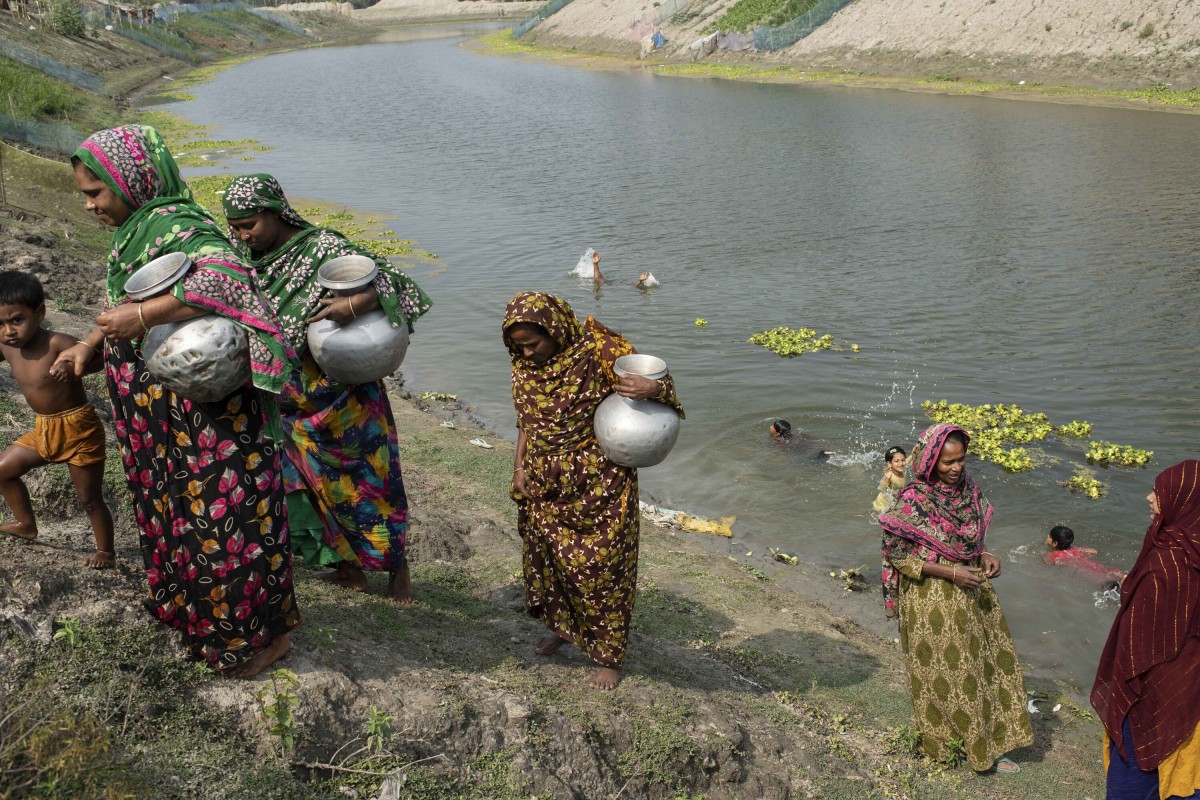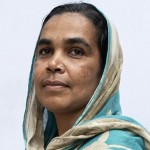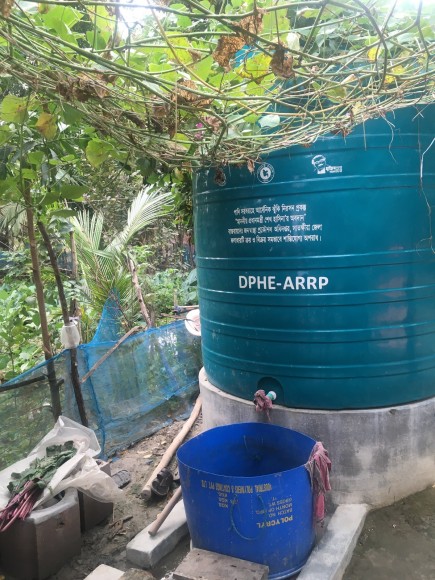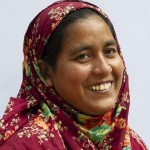Water Justice Fund: strength in solidarity for the women of Balli Union
Together they are strong, the women of Balli Union have discovered. With a mass petition for rainwater tanks, they not only gained access to water but also confidence in their collective power.
Just over a year ago, they came together for the first time: thirty women from Balli Union, Bangladesh. Their community is plagued by a lack of drinking water, decent toilets and constant floods. So, when Nazmun Nahar, leader of a small local women's organisation, came to visit them, they didn’t have too much faith. They had heard empty promises before.
But Nahar was determined. She had been asked by Simavi’s Water Justice Fund to invite women in the Sathkira region to submit proposals to collectively address their water problems. Bringing these women together was the first step.

As a local resident Nahar (40) is all too familiar with the effects of climate change in southern Bangladesh. Her dream is a future where not only her own family but the whole community has access to safe water, toilets and a better life. 'I believe cooperation is the key to tackling problems,’ she says.
The Water Justice Fund supports women and girls at the forefront of climate change with grants for locally led adaptation. The goal is to elevate women to positions where they can actively influence policy and take decisive action, fostering their leadership and agency.

'I believe cooperation is the key to tackling problems'
Setting up the women's group in Balli Union began by identifying the women who bear the brunt of the impacts of climate change manifesting in the form of the lack of water supply. Among them 25-year-old Mukta Khatun, mother of a five-year-old daughter.
Mukta Khatun relates how she was forced to drink contaminated water during her pregnancy. Like many other children, her daughter struggles with asthma and allergies. She herself also suffers from the lack of clean water, especially during her period. Using dirty sanitary pads during long days in the fields has led to infections. Most water sources in Balli Union are contaminated by salinity intrusion and the remaining freshwater sources are not safe for drinking either.
The start of Shapla Mohila Dol
After several visits to Balli Union, Nazmun Nahar managed to win the confidence of the women. The start of the Water Lily Women's Group (Shapla Mohila Dol) - as they decided to call themselves - was a reality. Just as three other women groups in the area supported by Nahar's organisation.
Nahar: ‘Each women's group elects a steering committee consisting of a chairperson, a secretary and a treasurer. The group meets every week to talk to each other about the challenges they face. There is always someone from our team to provide guidance and information on topics like climate change, and government resources available to them.'
For example, the women did not know that they are entitled to a small financial contribution from the government during their pregnancy. Nahar proudly notes: 'One of the women recently managed to apply for this benefit.'
Mass petition for rainwater tanks
The women's biggest victory came when they decided to draft a petition to claim a government scheme for subsidised rainwater tanks. A scheme they had never heard of before. In practice the money ended up mostly with wealthier households and with people with the right connections.
With a 90 per cent subsidy, households like those in Balli Union can obtain such a water tank. By collecting and storing rainwater, an entire family is assured of clean drinking water and women do not have to make long trips to the river or other water sources. Additionally, having access to clean water significantly reduces the risk of waterborne diseases such as diarrhoea, dysentery, and skin diseases for their children.

Most of the women in the Water Lily Women's Group had never been to a government office before. To make their voices heard, they decided to write an official application together and collect signatures. Armed with these documents, they visited not only the union office, but also the upazila (district) office and met with representatives of the Department of Public Health and Engineering (DPHE).
This was new for many government officials too. They had never experienced anything like this before. But the visits were successful. The women were assured that they were eligible for the water tanks. And tenacious as they were, the women kept making visits until everyone in the group got a rainwater tank.
25-year-old Mukta Khatun is happy that her entire family can now drink water safely. 'I hope my daughter's skin will improve now that she gets clean water and that later - when she is pregnant herself - she will be better off.'
Gaining strength together
Ruma Panvin (35), mother of a daughter and a son, is also a member of the women's group. 'We were always unaware of our rights. But now we have gained strength together. A single branch may break quickly, but a whole bunch is very strong. How quickly we managed to solve this problem gives a lot of hope for other problems we have.'
Nahar tells how proud everyone feels. 'These women never imagined they would have the opportunity to speak with powerful people from the government, let alone have these people listen to them and help them. This was only possible because they worked together. 'Even their husbands - who initially thought all those meetings were a waste of time - are now enthusiastic and proud of their wives’, says Nahar. The women have also decided to start saving together, putting in a small amount every month.

'A single branch may break quickly, but a whole bunch is very strong'
Meanwhile, the success of the Water Lily Women's Group has also inspired others. Many women are now keen to join a women's group themselves. Shamima Kathan has two sons and lives in a village down the road. She fetches water from a source of polluted water. 'Since I am eight months pregnant, this is very tough. Because I heard about the Water Lily Women's Group, I applied for a rainwater tank myself.'
Meanwhile, the Water Lily Women's Group already has new plans. The women have prepared a new mass petition asking for government support to build better toilets. The 16 other women's groups in Bangladesh supported by the Water Justice Fund have also done so. The latrines that many households now have are regularly flooded and often have neither walls nor doors. But because there is limited budget for sanitation in Bangladesh, this is a more difficult task.
Nevertheless, the first success has been achieved. The local government has submitted a budget request for sanitation facilities to the district, something that has not happened before. And the women of Balli Union are determined to continue their advocacy and remain consistent in their efforts to tackle their challenges head on.


